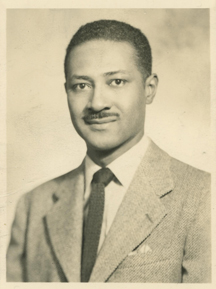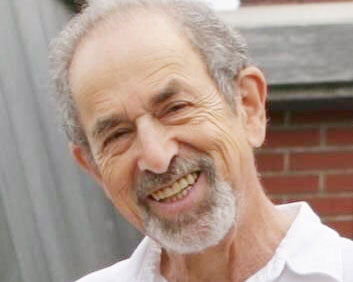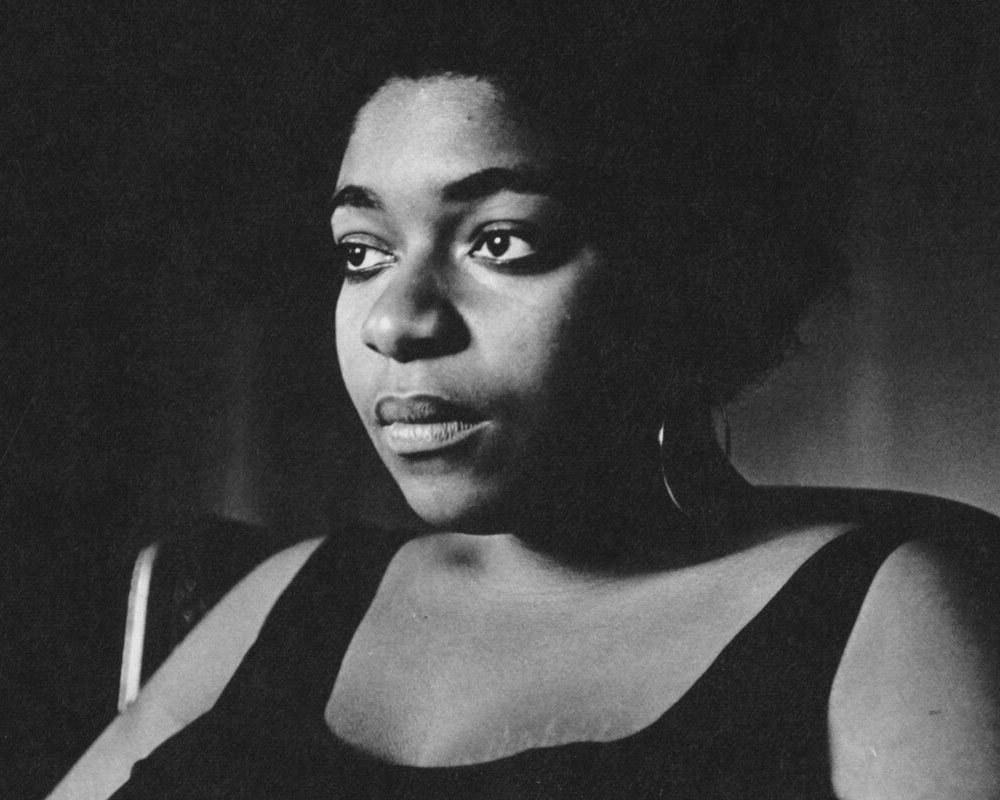Influential Professor, Jazz Musician.
Prof. William Couch Jr.

Prof. William Couch Jr. [English 1953–55] was a prominent African American educator who lived an extraordinary life that touched many people around the globe. Prof. Couch was born one of five children in Morganville, Kentucky, in 1914. His father was an orphan adopted by a white dentist in Indiana shortly before the turn of the 19th century.
When Couch was about three years old, his father lost his business and the family moved to Chicago. Couch was a musical prodigy whose conspicuous intellect attracted the attention of Inez Cunningham Stark, a wealthy Chicagoan who discovered the poet Gwendolyn Brooks. Cunningham created a stir in Couch’s South Chicago neighborhood when she picked him up at his home in her private limousine to introduce him to her poetry circles.
He became a professional jazz musician in his teens and was befriended by Louis Armstrong, who invited him to play trumpet at leading Chicago jazz clubs.He studied music at Roosevelt College, but took a break to pursue music professionally when Nat King Cole hired him to play in his band. He played with many famous performers, including Cab Calloway, Ethel Waters, Dorothy Donegan, and his first wife, Lillian Cowan.
After they were married, Couch completed his bachelor’s degree at Roosevelt. Their marriage ended when he joined the army on December 7, 1941. He became one of the first black combat infantry officers in the nation’s history, eventually commanding a military police battalion on Iwo Jima.
After the war, he lived in New York, where he participated in its literary circles and became a best friend of novelist and scholar Ralph Ellison. He was offered a teaching position at a prestigious white northern college, but its president rescinded the offer because he suspected Couch was dating a white woman. From 1948–51, he taught English at Jackson State Teachers College in Mississippi, and soon after, he entered the University of Chicago’s doctoral program in English literature on a Rockefeller fellowship.
After earning his PhD in 1953, he was appointed to the literature and languages department at Reed, where he became the school’s first African American professor. Reed recruited him only because he insisted that the University of Chicago send his resume to other than black colleges. That resume, evidently, did not identify him as African American, which may explain the surprise of some of his new colleagues when he arrived for his first faculty meeting.
Couch taught at Reed for two years, until a recruiter from Bennett College in Greensboro, North Carolina, convinced him that he could make a more important contribution to society teaching black kids in the South than white kids at an elite college in the North. When he left Reed, President Frank Griffin [math 1911-56] presented him with his own University of Chicago PhD hood.
Couch spent the rest of his pioneering career at historically black colleges and universities, including West Virginia State College, Jackson State University, Bennett College, Southern University, North Carolina Central University, Federal City College (now the University of the District of Columbia), Howard University, and Bowie State. He was a senior administrator at Federal City College, where he cofounded the Lorton Prison College Program with his distinguished colleague Dr. Andress Taylor. He published scholarly articles and an important book, New Black Playwrights, An Anthology, which he dedicated to W.E.B. DuBois.
He married Ola Criss, DEd., who worked for the State Department, and accompanied her on assignments to Lagos, Nigeria; Quito and Guayaquil, Ecuador; Accra, Ghana; and Georgetown, Guyana. In those countries, he became a major contributor to their art and education communities and benefactor to numerous students seeking higher education.
When Ola retired in 2010, the couple and the son they adopted in Ghana moved to Weston, Florida. He is survived by Ola and his sons, Kenny Criss-Couch and William Noel Edlin.
Appeared in Reed magazine: September 2016





![Photo of Prof. Marvin Levich [philosophy 1953–94]](https://www.reed.edu/reed-magazine/in-memoriam/assets/images/2022/LTL-levich1.jpg)
![Photo of President Paul E. Bragdon [1971–88]](https://www.reed.edu/reed-magazine/in-memoriam/assets/images/2020/Bragdon.jpg)
![Photo of Prof. Edward Barton Segel [history 1973–2011]](https://www.reed.edu/reed-magazine/in-memoriam/assets/images/2020/Segel.jpg)








































































